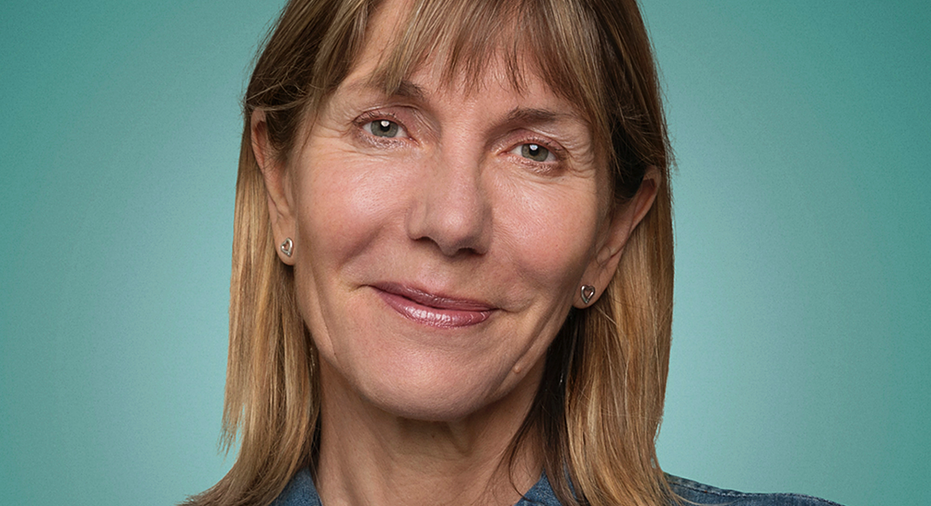Insider Q&A: Uber human resources chief Liane Hornsey

SAN FRANCISCO – The revelation came just weeks after Liane Hornsey joined Uber as chief human resources officer.
In February, former engineer Susan Fowler posted a blog detailing how she was propositioned by her boss and her complaints to human resources were ignored.
There were outside investigations, including one by former Attorney General Eric Holder, that found widespread harassment and bullying. Combative CEO Travis Kalanick was later ousted by a divided board.
Hornsey, who was hired from her chief administrative officer post at Softbank and had spent nearly a decade leading Google's human resources department, set about trying to change Uber's culture. She spoke with The Associated Press about her work. The interview has been edited for length and clarity.
Q: For a couple of months, you were without a CEO. Now you've got Dara Khosrowshahi from Expedia. How will this affect your efforts?
A: In all my conversations with him, he has been extremely supportive that we continue to build on the great culture work we've already done. It's absolutely top of mind for him. I know he is particularly passionate about creating a diverse and inclusive workplace for everyone. I'm confident positive cultural change is more possible than ever.
Q: You came in before the Susan Fowler blog. Did you know the extent of the problems here?
A: Certainly nothing along the lines of Susan Fowler. But it definitely had the reputation for being hard-charging, disruptive and rather bold. So coming in, I had understood that was the case. But the Susan Fowler blog, I've got to tell you, it just knocked this company sideward. I remember it happened on a Sunday. On the Tuesday we stood up in an all-hands (staff meeting). Travis started talking about how sad he was about what had happened and how there is no room for this sort of behavior. I was the last person to speak, and I had never spoken on stage before at Uber. People were in tears, people were deeply shocked. It was palpable and visceral. So regardless of me being new and not having any sense of it, I think a lot of people had no sense that something that awful was happening.
Q: The Holder report gives you the impression that it was more pervasive and it would have been known to more people.
A: I think things like that are rarely talked about in organizations. I ran a lot of listening sessions and it didn't come up. But it actually did come up in the hotline, and it did come up in one-to-one sort of very confidential conversations. What that led me to understand is this is just not something people talk about en masse. For us it's eradiation. There are no half measures at all. We've kept a hotline and we have very, very robust ways of people raising issues confidentially. And of course it's very well known that we let go of 20 people.
Q: How are you handling so many problems at once?
A: After that blog, I went immediately into these listening sessions. We ran 200 of them. Our employees were saying these nine things need to change. Let's just hit them off one after the other after the other. I send an email to all employees every two weeks saying this is what we're doing, this is where we are, this is how we're involving you. My sense is that the organization needs action and they need to know we're serious.
Q: How much legacy is left then? Is the old culture still embedded in the organization?
A: Culture change usually takes 18 months to two years. I think it's going be quicker here. A lot of people are saying to me 'I can feel the change.' Things that would look very small and symbolic. We used to serve dinner at 8:15. We've moved it to 7. Tiny, tiny symbolism. But it matters to people. Because people were very angry that they had to stay at work. I sense that some of the cynicism is eroding.
Q: When you first started, was the size of the HR team inadequate?
A: As I dug into several issues in Susan's blog, it was very clear to me that she wasn't well-served by the HR team. It was woefully inadequate numerically, and also there were too many junior people that were being given too much to do without enough guidance. I've concentrated on bringing in a senior team. I've now hired six or seven really consummate executives. What happens is in a startup that is super successful, that is absolutely the business end just growing, growing. Often the processes and the support functions get left behind.
____
This interview was conducted before Uber hired Dara Khosrowshahi as its new CEO. Hornsey was asked about Khosrowshahi via email and through a spokeswoman.



















